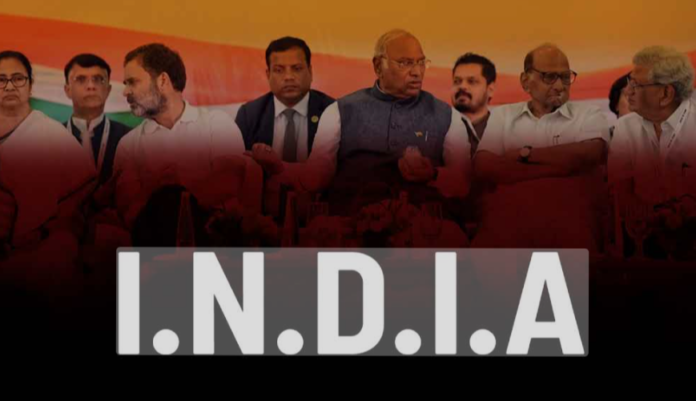Ravi Shankar Tiwari
In the ever-shifting landscape of Indian politics, alliances and seat-sharing arrangements often dictate the trajectory of electoral battles. The recent developments within the Aam Aadmi Party (AAP) and its potential collaboration with Congress highlight the intricacies of coalition politics within the broader framework of the Opposition INDIA bloc. While AAP hints at seat-sharing with the Congress in Delhi, the underlying dynamics suggest a deeper struggle for relevance and electoral supremacy.
Just when observers speculated AAP’s departure from the INDIA bloc to pursue individual electoral prospects in Punjab and Delhi, party chief Arvind Kejriwal swiftly clarified the situation. While AAP and Congress agreed to contest separately in all 13 seats in Punjab, negotiations are underway for the seven Lok Sabha constituencies in Delhi. Kejriwal’s assertion that this arrangement would reflect the respective ground strengths of both parties underscores the strategic calculus at play.
In Punjab, AAP and Congress find themselves as direct competitors, relegating the Bharatiya Janata Party (BJP) to a marginal force. Conversely, Delhi presents a different scenario, with the BJP occupying the central pole in national elections. Kejriwal’s observation that the BJP stands to benefit from a lack of alliance between AAP and Congress underscores the tactical considerations guiding these discussions.
The upcoming electoral contests in Gujarat and Goa further complicate the equation. AAP seeks to establish its presence in these states, with reported aspirations of contesting eight of Gujarat’s 26 Lok Sabha seats and one of Goa’s two constituencies. However, both states have historically witnessed bipolar contests between the BJP and Congress, raising questions about the viability of AAP’s electoral ambitions against entrenched political forces.
The deliberations within AAP regarding alliance strategies reflect broader challenges facing the Opposition bloc in India. While unity against the ruling party is often touted as a necessity, divergent interests and regional dynamics frequently impede cohesive action. The case of Punjab exemplifies this dilemma, where AAP and Congress vie for supremacy, leaving little room for consensus on electoral alliances.
Moreover, the significance of Delhi in national politics amplifies the stakes for both AAP and Congress. As the seat of power, Delhi symbolizes political influence and control, making it a coveted battleground for parties seeking to assert their relevance on the national stage. The outcome of seat-sharing negotiations in Delhi could reverberate beyond the confines of the city, shaping perceptions of the Opposition’s strength and cohesion.
The INDIA bloc, comprising various regional and national parties, often serves as a forum for dialogue and coordination among opposition forces. However, its efficacy in translating rhetoric into electoral gains remains a subject of debate. While AAP’s overtures towards seat-sharing with Congress signal a willingness to explore collaborative strategies, the ultimate success of such initiatives hinges on multiple factors, including local dynamics, leadership equations, and electoral arithmetic.
The tussle over seat-sharing also reflects the evolving nature of Indian politics, characterized by fluid alliances and realignments. Parties navigate complex terrain, balancing ideological imperatives with pragmatic considerations of electoral viability. In this context, AAP’s negotiations with Congress underscore the delicate balance between ideological affinity and electoral expediency.
Beyond the immediate electoral calculations, the outcome of seat-sharing discussions could have far-reaching implications for the future trajectory of Indian politics. A cohesive opposition alliance could pose a formidable challenge to the ruling dispensation, while disunity and fragmentation could further consolidate the incumbent’s hold on power.
AAP’s hints at seat-sharing with Congress in Delhi underscore the intricate dynamics of coalition politics within the broader INDIA bloc. While alliances offer potential avenues for leveraging collective strength, they also expose inherent tensions and divergent interests among opposition parties. As negotiations unfold and electoral battles intensify, the choices made by AAP and its counterparts will shape the contours of Indian politics in the days to come.


